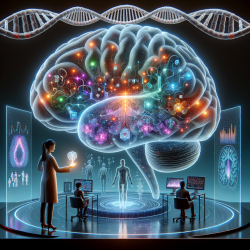Introduction
In the ever-evolving field of microbiology, the role of databases has become increasingly pivotal. As the volume of biological data continues to expand, particularly with the advent of next-generation sequencing technologies, the need for organized and accessible data repositories is more crucial than ever. The research article, "Databases for Microbiologists" by Zhulin (2015), highlights the significance of databases in archiving, storing, maintaining, and sharing critical information about genes, genomes, protein sequences, and more. This blog explores how practitioners can leverage these databases to enhance their research capabilities and improve outcomes.
The Power of Databases in Microbiology
Databases serve as the backbone of modern microbiological research. They provide a structured platform for storing vast amounts of genomic data, allowing researchers to access, analyze, and interpret information efficiently. The article categorizes databases into three main types:
- Global Resources: Comprehensive suites like NCBI and EMBL-EBI offer extensive genomic and molecular biology data collections.
- Comprehensive Databases: These focus on specific categories, such as protein families or metabolic pathways, providing detailed insights.
- Special-Purpose Databases: Tailored to specific needs, these databases cater to niche areas like microbial diversity or pathogenesis.
Implementing Database Insights in Practice
For practitioners, understanding and utilizing these databases can significantly enhance research efficiency and accuracy. Here are some practical steps to integrate database insights into your work:
- Stay Updated: Regularly explore updates in global resources like NCBI to access the latest genomic data.
- Utilize Specialized Databases: For specific research needs, delve into special-purpose databases that align with your focus area, such as the PATRIC database for pathogen research.
- Enhance Data Analysis: Use comprehensive databases to conduct detailed analyses of protein interactions or metabolic pathways, leveraging tools like STRING for protein networks.
Encouraging Further Research
While databases provide a wealth of information, they also highlight gaps and opportunities for further research. Practitioners are encouraged to explore these areas, contributing to the continuous evolution of microbiological knowledge. Engaging with databases not only enhances individual research but also supports the broader scientific community by sharing findings and data.
Conclusion
Databases are indispensable tools in the microbiologist's toolkit, offering pathways to deeper insights and more robust research outcomes. By mastering the use of these resources, practitioners can drive innovation and discovery in microbiology, ultimately leading to improved health and environmental solutions.
To read the original research paper, please follow this link: Databases for Microbiologists.










